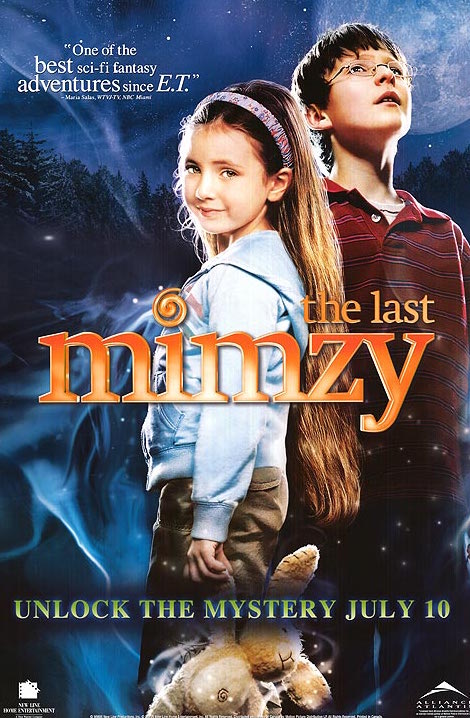|
THE LAST MIMZY (2007)
IMDb Bob Shaye, the founder and head of New Line Cinema, hired me to write a movie based on a short story called Mimzy Were the Borogroves. When he presented the source story to me, I recognized it right away. As a kid, I had seen a TV show that dramatized the story in a half hour episode. My brother Gary and I watched that show—about two kids who find toys from the future—in complete awe. But the show ended rather abruptly, and I felt like something was missing. I tuned in to the show again the next day, thinking that maybe I’d only seen half of the story—but there was no second half. Forty years later, I was thinking, Oh boy, I’m finally going to find out how this story ends. But when I read the source story, I found that it ended in the same place as the TV show. The two kids disappear into the future, but you don’t really know what it means. I went to Bob Shaye and I said, “There’s no ending.” He said, “You have to create the ending.” I kept trying to figure out where the toys came from. Then I remembered that, in Tibetan Buddhist culture, the Dalai Lama and other lamas are identified by toys. When children are identified as possible reincarnates, they are taken to a room filled with toys. If they start playing with the toys from the previous life of the lama, it shows that they are that reincarnated being. What I wrote was an essentially Buddhist movie, but Bob Shaye—who was planning to direct the film—kept changing it. At one point, he had a meeting with Steve Jobs where they talked about the success of the Pixar movies. Steve Jobs said the secret to good storytelling was cutting out everything that isn’t absolutely essential. So Bob decided to cut all the Buddhist elements out of the story. What was interesting was that the essential Buddhism of the movie couldn’t be extracted. That’s how I realized what an incredibly expansive medium film is. So much information is expressed onscreen that even when you cut out major plot, story, and character elements, there is an underlying richness and density in the medium that compensates for those missing parts. The actors’ faces, lighting, costumes, and music communicate the story as much as words or even whole scenes do. I still missed the excised scenes, but I was amazed to see that the film held up without them. There is still a strong spiritual aspect to the finished film. That story was bigger than the words on the page. |
